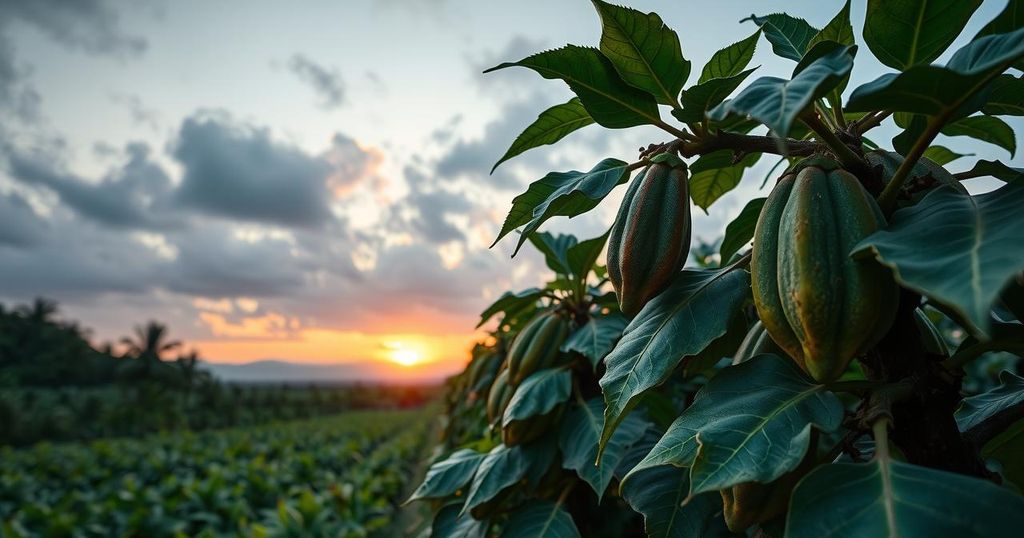Cocoa Crisis: Climate Change Threatens the Future of Chocolate

The cocoa industry is facing a severe crisis due to climate change, with prices rising by 400% recently. Extreme weather conditions have drastically reduced cocoa production in major producing countries like Côte d’Ivoire and Ghana. This has threatened the livelihoods of farmers and the future of chocolate, prompting calls for urgent action to mitigate climate impacts and support sustainable practices.
The cocoa industry faces a significant crisis due to climate change, highlighted by a recent report from Christian Aid. Cocoa prices have surged by 400% in recent years, primarily due to increasingly extreme weather conditions in key producing regions such as Côte d’Ivoire and Ghana. Climate-related events, including heatwaves and erratic rainfall, have drastically reduced cocoa harvests, threatening the livelihoods of cocoa farmers and the chocolate industry as a whole.
Record high temperatures have contributed to severe crop difficulties, with a study revealing that climate change made the recent heatwave in West Africa ten times more likely. Cocoa-producing areas experienced up to six additional weeks of days exceeding optimal temperatures for cacao plants in 2024. The consequences include a significant drop in global cocoa availability and soaring prices for both consumers and manufacturers.
The situation has prompted action from both producers and advocacy organizations. British chocolatiers, including Andy Soden from Kernow Chocolate, describe the crisis as a desperate situation, stating that no chocolate business remains untouched by the repercussions of climate change. He added that small manufacturers face severe challenges adapting to inflated market prices that jeopardize their sustainability.
The insight provided by Osai Ojigho, Director of Policy and Public Campaigns at Christian Aid, emphasizes that cocoa farming is vital for many impoverished communities. She highlighted the need for urgent initiatives to reduce emissions and secure funding for cocoa growers to adapt to changing conditions. Other cocoa growers, like Amelia from Guatemala, voiced their struggles with deteriorating crops, attributing the decline to climate impacts that have reached alarming levels.
Amid rising pressures, companies are beginning to adopt sustainable practices. Gemma Whitaker from Whitakers Chocolates asserted the importance of advocating for Fairtrade cocoa to ensure fair remuneration for farmers. This approach seeks to foster sustainability in cocoa supply chains while combating the dire effects of climate change.
Overall, the cocoa crisis exemplifies a dire intersection of environmental and economic challenges, where the combination of climate change and unsustainable trade practices severely threatens cocoa production. Urgent action is necessary not just to protect farmers, but also to secure the future of chocolate for consumers globally.
In conclusion, the cocoa crisis driven by climate change poses a severe threat to the chocolate industry and the livelihoods of cocoa farmers. Rising prices and reduced supply highlight the urgency for strategic interventions that prioritize sustainability and fair compensation for growers. Collaborative efforts among chocolatiers, advocacy organizations, and governments are essential to ensure the resilience of cocoa production amidst climate challenges.
Original Source: reliefweb.int






